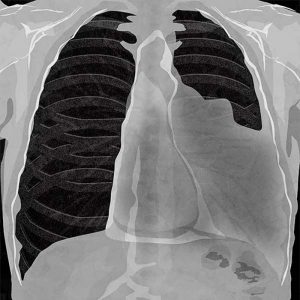The Genetic Basis of Lung Cancer
All cells in the body contain the genetic material called deoxyribonucleic acid (DNA). Every time a mature cell divides into two new cells, its DNA is exactly duplicated. The cells are copies of the original cell, identical in every way. In this way, our bodies continually replenish themselves. Old cells die off and the next generation replaces them.
A cancer begins with an error, or mutation, in a cell’s DNA. DNA mutations can be caused by the normal aging process or through environmental factors, such as cigarette smoke, breathing in asbestos fibers, and to exposure to radon gas.
Researchers have found that it takes a series of mutations to create a lung cancer cell. Before becoming fully cancerous, cells can be precancerous, in that they have some mutations but still function normally as lung cells.
When a cell with a genetic mutation divides, it passes along its abnormal genes to the two new cells, which then divide into four cells with errors in their DNA and so on. With each new mutation, the lung tissue cell becomes more mutated and may not be as effective in carrying out its function as a lung cell.
At a later stage of disease, some cells may travel away from the original tumor and start growing in other parts of the body. This process is call metastasis and the new distant sites are referred to as metastases.
Symptoms of Lung Cancer
It’s important to report any unusual physical feelings to your doctor. Often, these unusual feelings can be attributed to other causes, such as bronchitis. But a doctor should check anything that is unusual or worrisome. The signs and symptoms of lung cancer can take years to develop and they may not appear until the disease is advanced.
Symptoms of lung cancer that are in the chest:
- Coughing, especially if it persists or becomes intense
- Pain in the chest, shoulder, or back unrelated to pain from coughing
- A change in color or volume of sputum
- Shortness of breath
- Changes in the voice or being hoarse
- Harsh sounds with each breath (stridor)
- Recurrent lung problems, such as bronchitis or pneumonia
- Coughing up phlegm or mucus, especially if it is tinged with blood
- Coughing up blood
If the original lung cancer has spread, a person may feel symptoms in other places in the body. Common places for lung cancer to spread include other parts of the lungs, lymph nodes, bones, brain, liver, and adrenal glands.
Symptoms of lung cancer that may occur elsewhere in the body:
- Loss of appetite or unexplained weight loss
- Muscle wasting (also known as cachexia)
- Fatigue
- Headaches, bone or joint pain
- Bone fractures not related to accidental injury
- Neurological symptoms, such as unsteady gait or memory loss
- Neck or facial swelling
- General weakness
- Bleeding
- Blood clots

